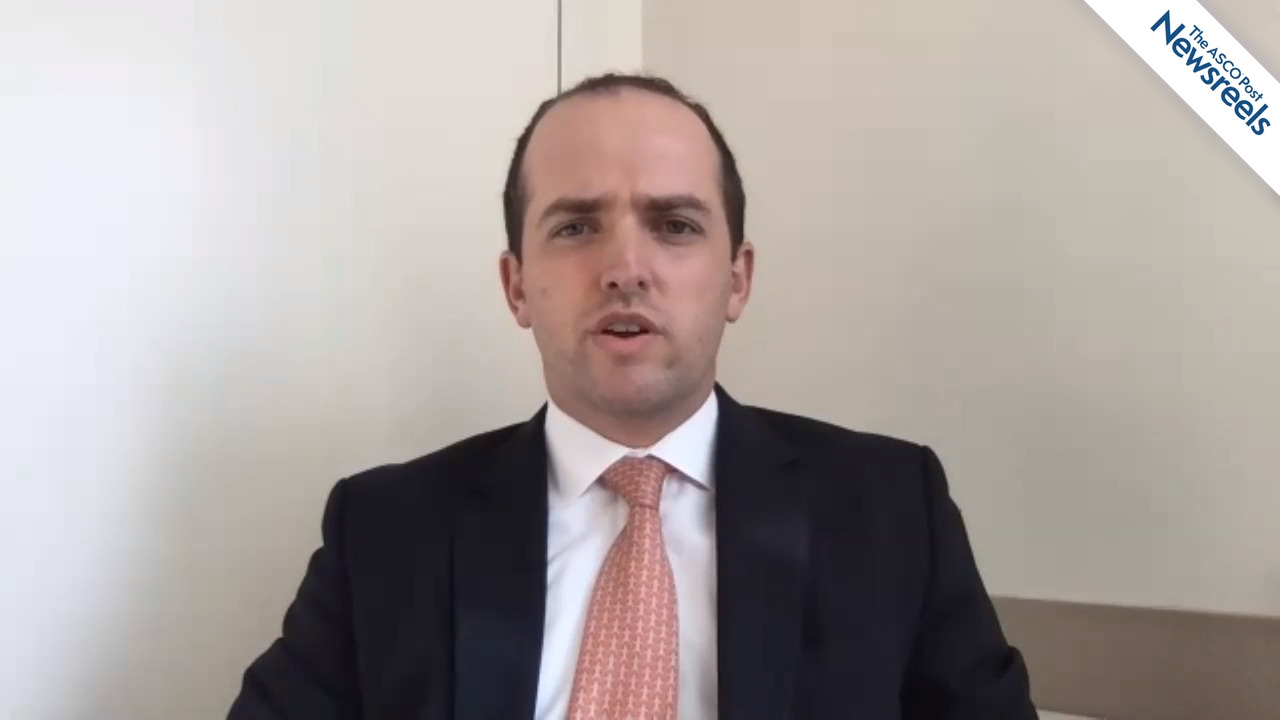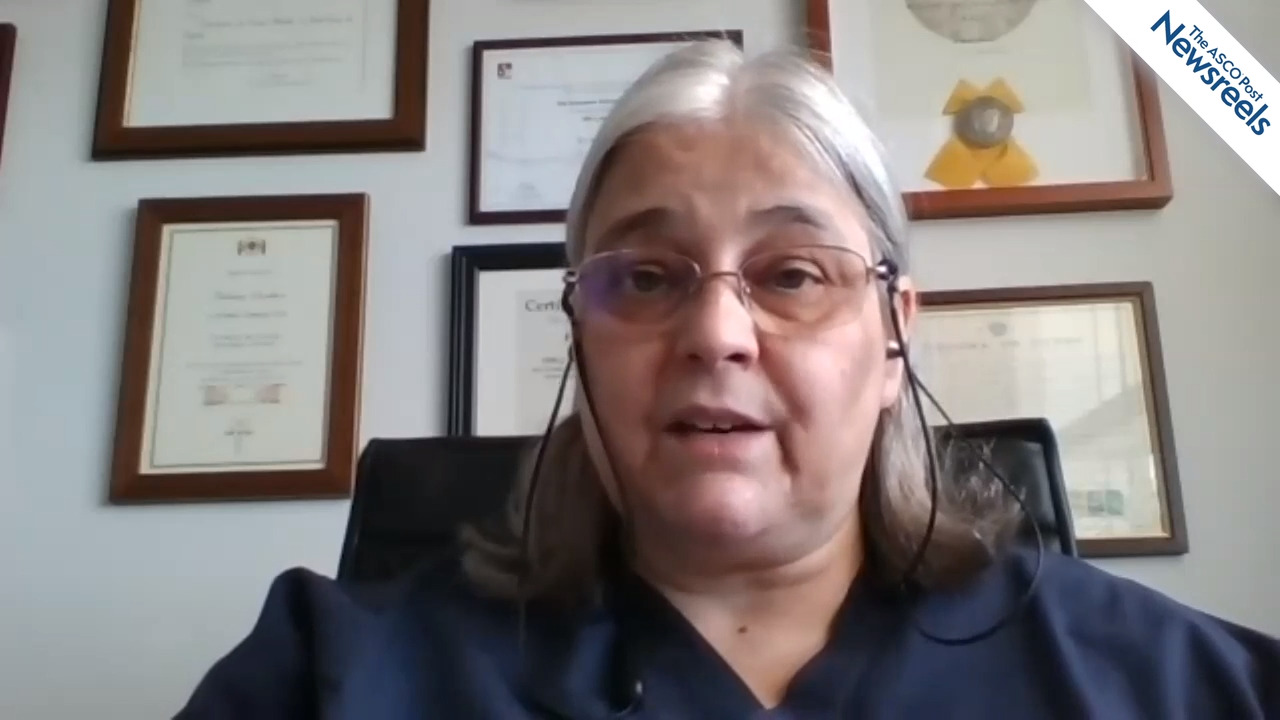Cynthia X. Ma, MD, PhD, on Breast Cancer: Neoadjuvant Endocrine Treatment for ER-Positive, HER2-Negative Disease
ASCO20 Virtual Scientific Program
Cynthia X. Ma, MD, PhD, of Washington University, discusses results from the ALTERNATE trial, which showed neither fulvestrant nor fulvestrant plus anastrozole significantly improved endocrine-sensitive disease rate compared with anastrozole alone in postmenopausal patients with locally advanced estrogen receptor–positive, HER2-negative breast cancer (Abstract 504).
The ASCO Post Staff
David R. Wise, MD, PhD, of New York University Perlmutter Cancer Center, summarizes three important studies in prostate cancer: circulating tumor cell count as a prognostic marker of PSA response and progression in metastatic castration-sensitive disease; new phenotypic subtypes; and how circulating tumor DNA dynamics associate with treatment response and radiologic progression-free survival (Abstracts 5506, 5507, and 5508).
The ASCO Post Staff
Fatima Cardoso, MD, of Lisbon’s Champalimaud Cancer Center, discusses the long-term results of MINDACT, a large prospective trial showing the clinical utility of the 70-gene signature MammaPrint for adjuvant chemotherapy decision-making. The primary distant metastasis–free survival endpoint at 5 years continued to be met in chemotherapy-untreated women with clinical-high/genomic-low risk disease (Abstract 506).
The ASCO Post Staff
Patricia Pautier, MD, of Institut Gustave Roussy, discusses final results of the phase II LMS-02 study, which showed the combination of doxorubicin and trabectedin to be an effective first-line therapy for patients with leiomyosarcoma, with an acceptable safety profile (Abstract 11506).
The ASCO Post Staff
Sarah A. Holstein, MD, PhD, of the University of Nebraska Medical Center, discusses top myeloma abstracts from the ASCO20 Virtual Scientific Program: the ENDURANCE trial on carfilzomib, lenalidomide, dexamethasone, and bortezomib; the STaMINA study on transplantation strategies; a first-in-human study on the novel CELMoD agent CC-92480 plus dexamethasone; the CARTITUDE-1 trial on CAR T-cell therapy; and a phase I study of teclistamab (Abstracts LBA3, 8506, 8500, 8505, and 100).
The ASCO Post Staff
Daniel P. Petrylak, MD, of the Yale Cancer Center, discusses early data on ARV-110, an androgen receptor proteolysis–targeting chimera degrader, demonstrating antitumor activity in metastatic castration-resistant prostate cancer after treatment with enzalutamide and abiraterone (Abstract 3500).





